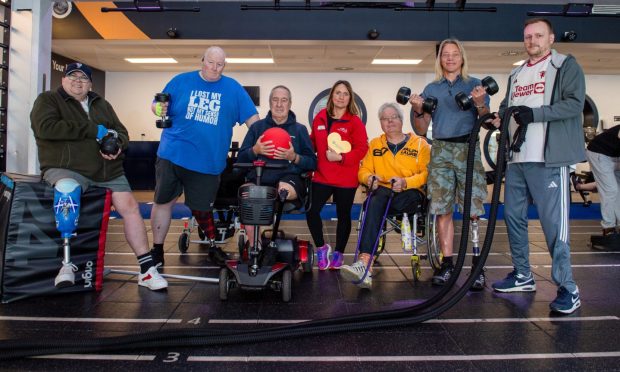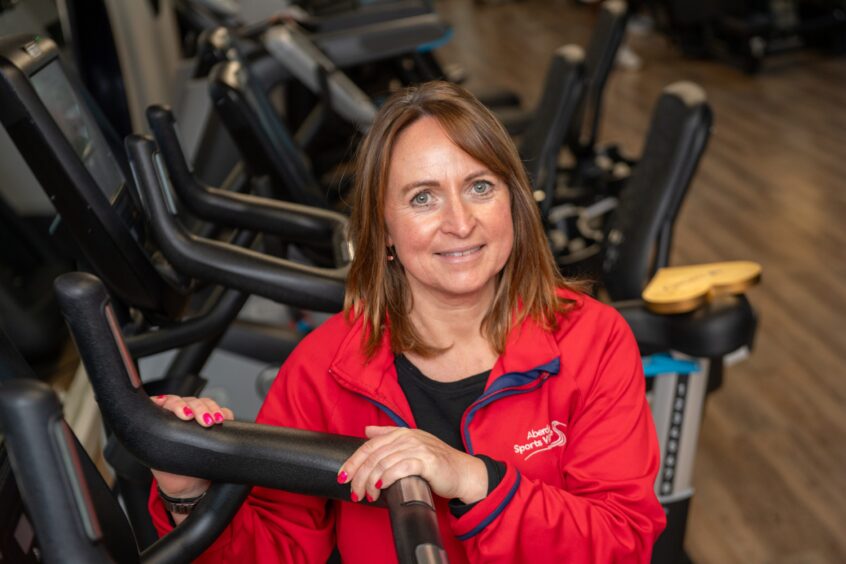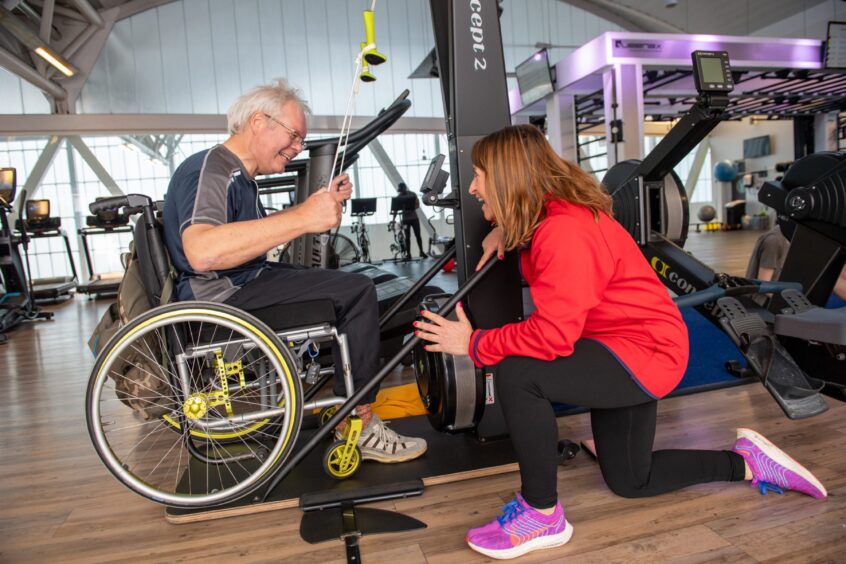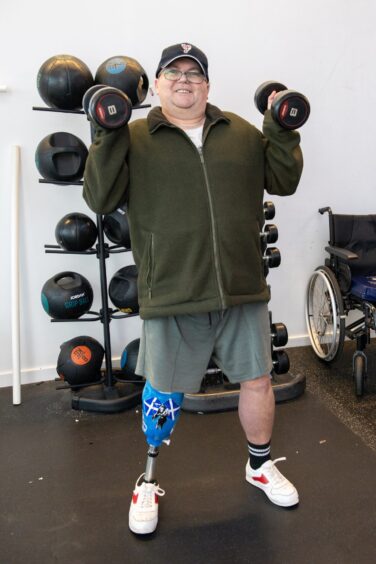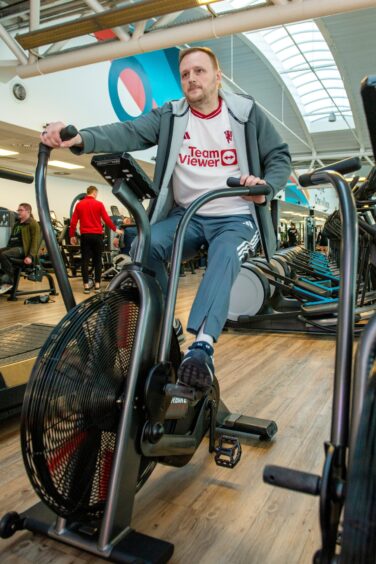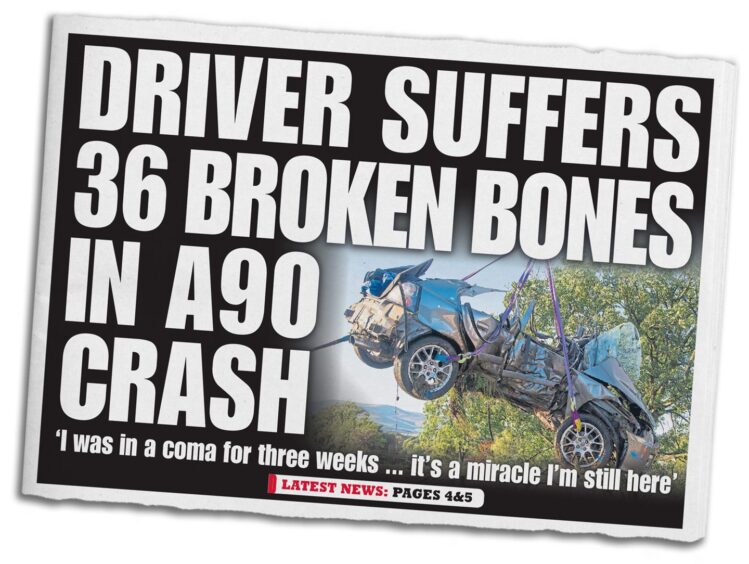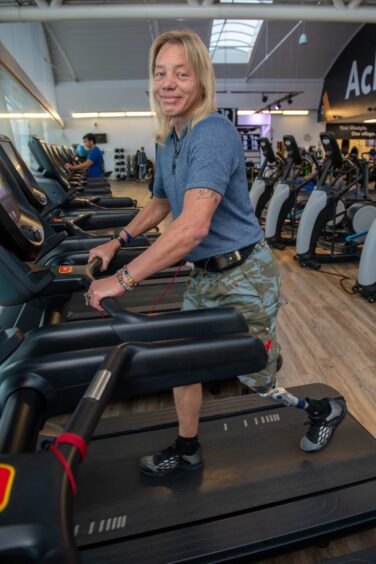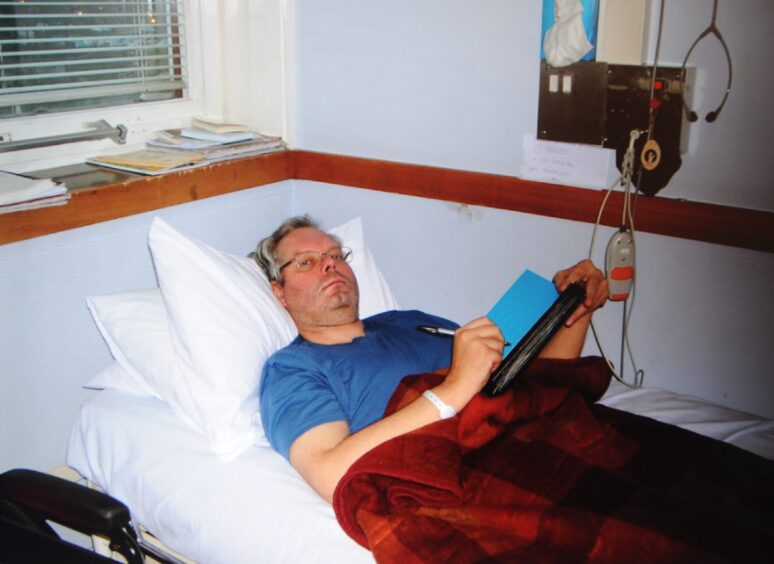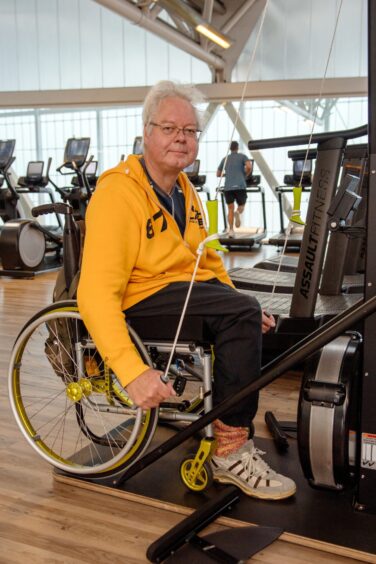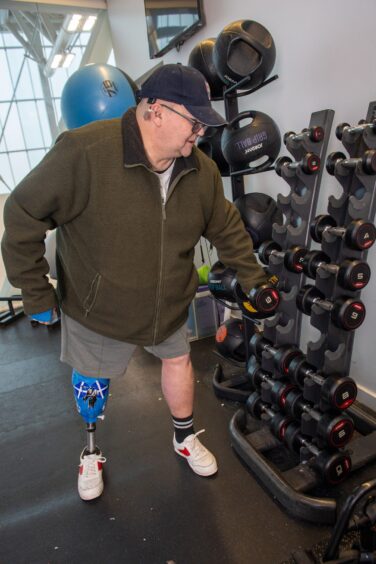In the lobby of Aberdeen Sports Village we are playing a quick round of ‘Reasons My Leg Was Amputated’.
Atholl Smart, the talker of the group, lost his leg in 2019 from diabetes.
For Bernie van der Heijdt it was a bacterial infection in 2008.
Kenny Shewan had his leg amputated 25 years ago because of drug use, while Derek Stephen, known to all as Doom, was in a car smash on the A90.
Four people, four very different reasons. But the group speaks as one when it comes to Tracy Stainer.
“Tracy will help you,” says Doom. “Anything you need, even if it’s something not to do with the gym, she’ll help you.”
Kenny puts it in starker terms.
He says simply: “If it wasn’t for Tracy’s classes, I wouldn’t be here.”
From Grampian police to Aberdeen Sports Village
Atholl, Bernie, Kenny and Doom are four of the regulars at ASV’s gym sessions for amputees. The classes are part of an initiative by Scottish charity Finding Your Feet to free gym memberships to people that have lost limbs.
But in Aberdeen they are really the creation of Tracy Stainer.
The 53-year-old is a personal trainer and instructor at ASV who specialises in working with people who don’t automatically assume exercise is for them.
It is a focus that comes from Tracy’s own background — she worked for Grampian police until the age of 39 before leveraging a part-time interest in fitness into a full-time career.
“I just thought to myself, if I did [fitness] as a job, I could teach people you can be fit and healthy at any age,” she explains.
So, shortly after lockdown ended, when a colleague at ASV asked her if she wanted to start gym classes for amputees, she jumped at the chance.
“Also,” Tracy says with a laugh, “I’ve got a habit of not saying no.”
Tracy wins Unsung Hero award at glittering Leeds ceremony
The classes have been a huge success. The group started out with just four members. Now 12 regulars come to the gym sessions on Tuesdays and swimming on Thursday.
There’s even plans to start a table-tennis club on Fridays.
The Finding Your Feet charity helps to fund the free gym memberships but it is Tracy and her colleagues at the charity-funded ASV that have built a community for the group.
“The Sports Village is a place I feel very comfortable,” says Atholl. “We can be independent. No one is there saying, can I help, can I do this for you?”
Tracy’s hard work was recognised in October when she won the Unsung Hero award at the Variety Club Disability Sports Awards 2023, the UK’s only annual sports awards for people with disabilities.
She’s proud of the honour, but she says the work is all about her group of amputees.
“When I first met them, they had tried gyms before but felt that they’d been stared at or that they hadn’t had a connection with the trainer,” she says.
“Now, time and again they tell me that this is the place they feel most accepted from the second they come in that door to when they leave.”
A place to feel accepted, and to have a yap
Back in the ASV lobby, Atholl is explaining exactly what he gets from his gym sessions.
The former security officer comes to the gym three times a week, working on building up his strength to be more independent of his wife. Of course, it also gives him a chance to work in his other strength — talking.
“We’ll meet early on a Tuesday before we go upstairs, and we’ll have a quick yap and then up the stairs you go,” he says. “Afterwards, you go home or you might go downstairs and yap some more.”
It is clearly a close-knit group. Atholl’s tendency to leap into the conversation no matter who’s talking is met with wry smiles.
There’s some chat about the upcoming Christmas party they’ve planned together (“We still need to get those secret Santas done,” Tracy reminds them all).
And everyone remembers the picnic they had in the summer, just outside ASV on the grass.
There’s also the sense they are facing their challenges together. The sessions are a place to talk openly about struggles with people who will understand.
For example, Kenny speaks movingly about how his chance discovery of the club a year ago has given him new focus in a life previously turned upside down by addiction.
For Doom, (so nicknamed because of his love for the classic video game Doom), who was lucky to escape with his life when his car came off the road just past Brechin at Stracathro and struck a tree, the gym class has also been life changing.
“When they took off the leg, I decided that’s it. I’d basically given up. I was ready to go,” he says.
Now, instead of sitting on his sofa feeling sorry for himself, he’s making new friends and new plans.
How Bernie went from losing a leg to becoming an athlete
Bernie says the hardest part was the first visit. He’d already been through hell after contracting a superbug that left him with the choice of losing his leg or losing his life.
The gym was not high on his list of priorities.
“You think it’s all going to be He Men and She Women and all the rest of it,” he says. “And it’s absolutely not like that. That was a revelation for me.”
The 64-year-old, who is originally from the Netherlands and lives in Newburgh, has now taken up wheelchair racing. He competes in 200 and 400 metre races for Aberdeen Athletics Club.
“They’re fast races,” he says, laughing. “And I’m not the fastest. But I’m getting better all the time.”
Why setting targets is not always the best policy
For Atholl, the gym classes have taught him more than just how to stay healthy.
Not long after he lost his leg, he set himself a goal of climbing the 22 flights of stairs to his son’s new flat.
He wanted to show his family, including his young granddaughter, that he was still capable.
But as he trained he developed blisters on his stump — painful welts that knocked back his recovery and his confidence.
“I’d see people that were amputated the same day as me walking down the street with no walking sticks,” Atholl says. “And I’d say to myself, really?”
The experience put him off setting targets.
“Now, I take each day as it comes,” he says. “There’s no point in building hopes up.”
He pauses, and then adds with a grin: “But I did get up those stairs.”
